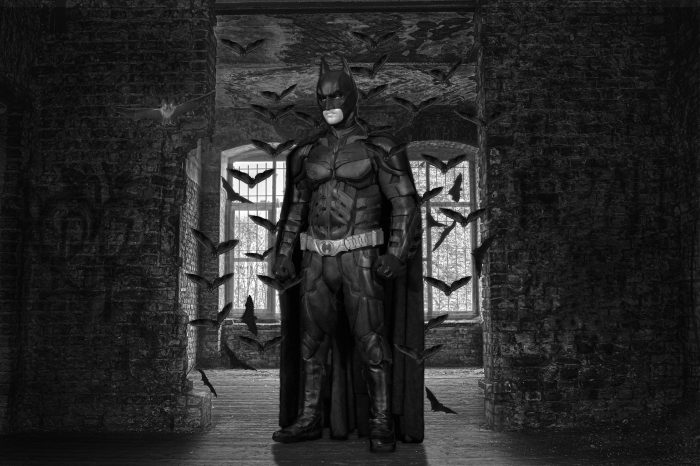A lot has been written about how COVID-19 wreaked havoc the world over, bringing with it anxiety and uncertainty as to what is to follow.
While there is no doubt as to the damage done at a global scale physically, emotionally, and psychologically, at the same time there have been many silver linings, such as the opportunity to reflect, connect with ourselves and our loved ones, and rediscover the simpler pleasures in life.
Watching TV or “Netflixing” (binge-watching shows on Netflix), has been the prime activity people have been resorting to during this period of isolating at home.
It’s a trend that continues as we try to navigate the lockdown (that’s what it’s come down to, at least here in Canada) and new variants of this stubborn virus. Of course, we indulge as well and, in fact, one of the most enjoyable activities for me personally has been bonding with my children, watching their favourite movies and shows.
Recently, my teenage son showed me one of his all-time favourite movies, “The Dark Knight.” I have to admit, I wasn’t too keen initially, but gave in when he insisted it’s a must-see, going so far as to call it a mistake that needs to be rectified!
While not a huge fan of violence, crime, and superhero movies in general, the film held my interest from the very beginning, and I was really fascinated by the complexity of the characters depicted in it. Having completed a degree in Cognitive Science, studying psychology and philosophy of mind, it triggered a whole train of thoughts for me.
This is something my children accuse me of regularly now: “Mama, you’ve started overanalysing everything!” I do plead guilty as charged but only because of an increased curiosity and desire to understand the workings of the human mind. It is fascinating to uncover what truly lies behind human thought and behaviours—be it in the fictional realm of film or part of our everyday reality.
Since time immemorial, our lives have been governed by the pursuit of one positive emotion—happiness—and an inherent need to nurture and protect our loved ones. These emotions guide us as we navigate the environment, seeking out opportunities as well as tackling imminent dangers. We worry not only about our own selves but also about the safety and well-being of those dearest to us. These emotions play a vital role in shaping us, being the driving force behind our actions and behaviours.
In the Batman trilogy, we see this at play as well. In fact, in the “Dark Knight Rises,” the final movie of the trilogy, Batman himself admits the motivation for keeping his identity hidden is the fear for his loved ones’ safety:
“If you’re working alone, wear a mask…The mask is not for you, its to protect the people you care about.”
Having lost his parents during childhood, he wants to protect the only family he has left at all cost: Alfred, the butler who raised him and his childhood love, Rachel.
It is also worth noting that basic emotions such as happiness, fear, and anger seem to be an innate part of human nature. Whereas in contrast, more complex emotions such as guilt and love are products of our environment—they are socially constructed and shaped by culture, developing as a result of living and interacting with others.
Equally important is the role played by close relationships. Take the case of “love” for example, an emotion that clearly mandates interaction with others—for how can one feel love without the presence of another to love?
Coming back to the “Dark Knight,” the second film of the Batman trilogy, we see the power of this emotion through the character development of the so-called White Knight of Gotham city. This was a person totally committed to justice and putting away as many criminals behind bars as he possibly could. Yet, we find this very person ready to kill an innocent child, blinded by his hunger for revenge at the killing of his beloved.
The powerful emotion of love causes even the noblest and best of people to lose their inherent goodness and sense of morality, making them turn to the dark side. This plays out all too often in our own lives as well. For instance, blinded by the pain and anguish caused by the death of loved ones during war, people decide to take justice into their own hands, going after those they believe to be responsible for their suffering.
Then again, love, or rather in this case, the absence of it, helps us understand the motivations of an evil genius, like the Joker. It is hinted at during the course of the film that his troubled childhood of abuse was devoid of love. That vacuum stayed with him and shaped him into what he became as an adult.
It is claimed that mental illness is often a result of repressed emotions tucked away in the corners of our subconscious or unconscious mind. As Freud famously said:
“Unexpressed emotions will never die. They are buried alive and will come forth in uglier ways.”
The “Dark Knight” was a powerful film, examining, among other things, the depth of human emotion and its power to drive our thoughts and behaviours as we journey through life.
Needless to say, I could not have stopped at watching only the “Dark Knight,” but ended up completing the trilogy that weekend, just not in chronological order!
I eagerly await my son’s next suggestion.
~


 Share on bsky
Share on bsky





Read 69 comments and reply